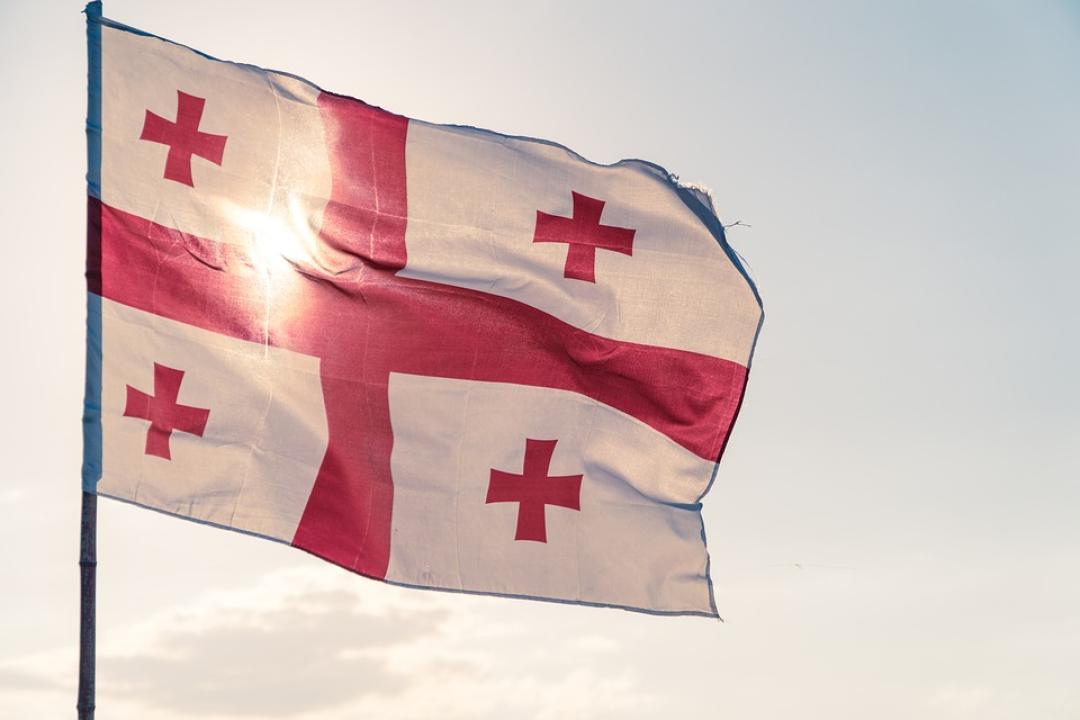
NATO and EU officials express concern about situation in Georgia

On 17 March, the NATO Secretary General Jens Stoltenberg expressed his concerns regarding the current political situation in Georgia while speaking with the country’s Prime Minister Irakli Garibashvili.
“Our close partnership means that we do not shy away from difficult discussions. The recent political developments in Georgia are worrying. NATO expects Georgia to uphold the democratic standards that it has worked so hard to develop in recent years. This includes resolving political differences through dialogue. And avoiding divisive rhetoric and actions. NATO supports the mediation efforts of the European Union. Prime Minister Garibashvili, I encourage you to work with the opposition to find common ground and common solutions,” Stoltenberg stated.
He also reaffirmed that Georgia is one of NATO’s most important partners. According to Stoltenberg Black Sea security is a priority for NATO and Georgia. Stoltenberg said that the NATO standing forces working with the Georgian coast guard demonstrates that NATO and Georgia are actually delivering together when it comes to practical cooperation. “We are concerned by Russia’s continued military build-up in the region. Russia is using Crimea to project forces in the Black Sea. And so, we are working to strengthen our presence in the Black Sea region,” he stated.
A day earlier, the Vice-President of the European Commission and High Representative of the European Union for Foreign Affairs and Security Policy Josep Borrell called on all political parties in Georgia to put the interests of the Georgian people first and find a compromise to overcome the ongoing political crisis. “A boycott of parliament will not benefit Georgian democracy. Although no agreement has been reached between the political forces in Georgia, after a meeting with the prime minister, it became clear that he is ready for constructive cooperation,” Borrell stated.
However, Georgia’s Prime Minister Irakli Garibashvili responded by saying that the ruling party [Georgian Dream] is not considering the fulfilment of the opposition’s main demand, the holding of new parliamentary elections. He said that the next elections will be held as planned, in 2024, and the release of the United National Movement leader Nika Melia and shareholder of the opposition Mtavari Arkhi TV Giorgi Rurua was not his main concern. “Politics does not guarantee immunity. If a politician commits a crime or breaks the law, he, of course, should be held accountable for his actions,” Garibashvili said.
The response from Georgia’s Foreign Minister David Zalkaliani was even harsher, saying that the issue of holding repeat elections has been removed from the agenda once and for all. Zalkaliani said that the October 2020 parliamentary elections were recognised by all European partners and international observers, including the OSCE/ODIHR. “Everyone can familiarise themselves with the results of the elections via the preliminary and final reports available to the general public,” he added.
The European Union also released an official document after the 6th EU-Georgia Association Council meeting in Brussels, saying that the 31 October 2020 Georgian parliamentary elections, as well as the second round of the elections held in November 2020, were “competitive” and that “fundamental freedoms were respected” overall. The document said that the EU “called for a swift resolution to the ongoing political situation, for all parties to step up efforts to de-escalate the situation and come together to identify and agree on common ground.”
Meanwhile, the leader of the Labor Party Shalva Natelashvili left the latest meeting between the ruling Georgian Dream and the opposition parties mediated by the EU Special Envoy Christian Danielsson. Natelashvili stated that the reason for his protest was the different perspectives on the meeting agenda and prioritisation of discussion issues. “The Labor Party leaves the format of the negotiation process, in which setting the date for the early elections, the issue of political prisoners and the absence of illegally detained Nika Melia are not discussed primarily,” he stated.
“I have said many times that building a house starts from the foundation and not from the roof. When we start discussing electoral, judicial reforms, other problems or initially request the opposition MPs to enter the parliament, it means that the process is falling apart and that the Russian oligarch [referming to GD’s former Chair Bidzina Ivanishvili remains the master of the country and, therefore, it means that the opposition has failed to fulfil the mission for Georgian people, for the present and future of the country,” Natelashvili added. However, he said that his party would join the sessions once the issues of early elections and Melia’s release had a clear resolution.
See Also


Simonyan: “Armenia Should Trade with Turkey and Azerbaijan Instead of Closing Borders”

Mirzoyan Meets US Deputy Assistant Secretary Joshua Huck

Azerbaijani President Holds Talks with UAE and German Business Delegations on Economic Cooperation

Grigoryan Confirms Armenia’s Readiness to Dissolve OSCE Minsk Group Upon Peace Treaty Signing

